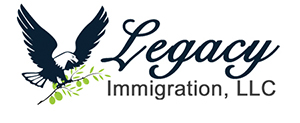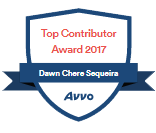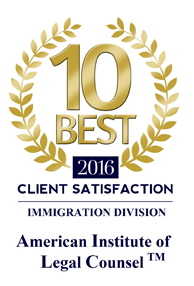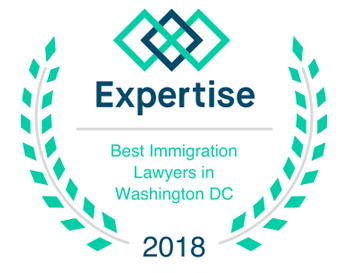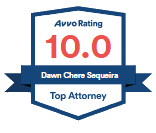Nonimmigrant Visas

There is an alphabet soup of visas. Which one is best for you?
If you need guidance on which type of U.S. visa may be best for you and do not know where to start, the U.S. Department of State, Bureau of Consular Affairs has a Visa Wizard that asks you specific questions and makes suggestions based on your answers. You can access the Visa Wizard by clicking here.
Most people know that one can change from one nonimmigrant visa to another while in the U.S. To change status, a person must be in lawful status up to the time of filing through the time that the new status takes effect (absent extraordinary circumstances as explained below).
What people do not know is that if a person has fallen out of status, there is still a chance to change or extend status without departing the U.S. USCIS may grant a request for a change or extension of status nunc pro tunc (retroactive) if the individual can prove that the failure to file in a timely manner was due to “extraordinary circumstances beyond the [applicant’s] control, that the delay was “commensurate with the circumstances,” that the applicant is a bona fide nonimmigrant not in removal proceedings, and has not otherwise violated his/her nonimmigrant status.
We were able to change the status of a client who had accrued nearly two years of unlawful presence.
There are over 30 different nonimmigrant visas from which to choose. Each visa has a specific purpose, limitations, and advantages. Below are the most commonly used nonimmigrant visas:
Officials in Foreign Governments (A): Ambassadors, public ministers or career diplomats/officers or accredited officials and employees of foreign governments recognized by the U.S. coming to the U.S. on official business; attendants, servants, personal employees and family members
Visitor for Business (B-1): Coming to the U.S. to engage in commercial transactions not involving gainful employment or to participate in scientific, educational, professional, religious or business conventions (without remuneration)
Visitor for Pleasure (B-2): Legitimate activities of a recreational character, including tourism, amusement, visits with friends or relatives, rest, medical treatment and activities of a fraternal, social or service nature such as tourists, social visits to friends/relatives, participants in amateur musical, sports or similar events, dependents of U.S. Armed Forces personnel, among others
Border Crossing Card (BCC): Issued for citizens and residents of Mexico, a BCC services as a B1/B2 visa and is valid for travel until the expiration date on the front of the card, usually ten years after issuance
Transit (C): Where the only purpose to enter the U.S. is to travel to another country with a brief layover in the U.S.
Crew Member (D): For those who will work on a sea vessel or for an international airline in the U.S. and will provide services required for normal operation and will depart the U.S. on the same vessel or any other vessel within 29 days of completing the contract<
Treaty Trader (E-1)/ Treaty Investor (E-2): Based upon a treaty of friendship, commerce, and navigation, Bilateral Investment Treaty, or other arrangement (NAFTA- Canada and Mexico) between U.S. and country of applicant’s nationality, a foreign national who will enter the U.S. solely to carry on substantial trade which is international in scope principally between U.S. and the foreign state of which s/he is a national or solely to develop and direct the operations of an enterprise in which the foreign worker has invested, or is actively in the process of investing, a substantial amount of capital in a bona fide enterprise, or is a key employee from treaty country of either E-1 or E-2, including executives and supervisors or persons whose services are essential to the efficient operation of the enterprise, or is a principal employer who is a person with nationality of treaty country whether in or outside US or an enterprise or organization that is 50% or more owned by treaty nationals
Australian Special Occupation (E-3): Allows Australian nationals to enter the U.S. solely to perform services in a specialty occupation in the U.S. if the foreign national obtains a certified Labor Condition Application, presents evidence of a job offer, has an available visa number, and intends to depart the U.S. upon termination of status
Student Visa (F): For a bona fide student who has no intention of abandoning foreign residence and is qualified to pursue a full-course of study at a designated institution approved by ICE in compliance with the SEVIS program
Representatives of International Organizations and Their Immediate Relatives (G-1 to G-4): Five categories including principal resident representative (and family and staff) with de jure jurisdiction, representatives of a recognized government (and their immediate family), either of the same without de jure jurisdiction, officers and employees of international organization (and immediate family) and attendants, servants and personal employees of G-1 to G-4 not required to maintain residence abroad
Specialty Occupations that require theoretical or technical expertise in specialized fields (H-1B) Fast Track H-1Bs for Chile and Singapore (H-1B1): U.S. employer must petition foreign worker. Requires legitimate employer-employee relationship and a certified Labor Condition Application. Benefits include dual intent (approval of a labor certification or filing of immigrant visa petitions does not preclude approval or extension of H-1B), concurrent employment, portability, work authorization for certain spouses, and does not require maintenance of foreign residence. Subject to annual cap unless petitions is non-profit or research-affiliated institution
Temporary or Seasonal Work of a temporary or seasonal nature (H-2A): For foreign workers who will enter the U.S. to perform agricultural labor or services, including farming, raising livestock, forestry, lumbering or other practices associated with farming operations. “Seasonal” is a certain time of year such as a growing cycle. “Temporary” is usually no longer than one year except in exceptional circumstances
Nonagricultural Labor or Services (H-2B): Employer who needs a foreign worker for a limited period of time either for a one-time occurrence, a seasonal need, a peak-load need, or an intermittent need, such as Ski Resort Workers or Amusement Park Employees, must obtain a certified Labor Certification
Trainee or Special Education Exchange Visitor (H-3): Will obtain training in the U.S. (that is not available in the home country) that will benefit his/her career outside the U.S., will not perform productive employment (unless it is incidental and necessary to the training and pursuing a career outside the U.S.), and will return to his/her foreign residence after completion of the training
Accompanying Spouses and Children (H-4): Qualifying family members of H-1B visa holders include spouses and unmarried children under age 21. In order for H-4 spouses to obtain work authorization, the H-1B visa holder must have an approved I-140 or have been granted H-1B status under AC21
Representatives of Foreign Media (I): Bona fide representative of foreign press, radio, film or other foreign information media who will enter the U.S. solely to engage in vocation. No foreign residence requirement, no limitation on extensions, may remain indefinitely, and no restrictions on adjustment of status
Research Scholars, Professors, Exchange Visitors Who Participate in Work- and Study-based Exchange Visitor Programs (J): Must have sufficient funds, be fluent in English, have a residence abroad, and maintain sufficient medical insurance for accident/illness. If subject to the Two-Year Foreign Residency Requirement, is unable to change/extend visa or adjust status while in the U.S. until a waiver is granted (which is usually a one-year process). Examples include professors or research scholars, short-term scholars, bona fide trainee or intern, college or university student, teacher, secondary school student, nonacademic specialist, foreign physician, international visitor, government visitor, camp counselor, au pair or summer student in a travel/work program
Intracompany Transferee (Executive/Managerial or Specialized Knowledge) (L): For a foreign worker who within the last three years preceding the application for admission, was employed abroad continuously for one year by a parent, branch, affiliate or subsidiary of the U.S. petitioner. For blanket petitions, the foreign worker must also have worked for the company abroad for at least twelve months
Student of Vocational and Technical School (M): Student taking full course-load at a vocational/ nonacademic institution (including a language training program) such as a flight school or cooking school (no online courses)
NATO (NATO-1, NATO-2, NATO-3, NATO-4, NATO-5, NATO-6, NATO-7, N-8, N-9) (N): Under North Atlantic Treaty Organization (NATO), certain representatives and staff from member countries can enter the U.S. with temporary visas
Individuals with Extraordinary Ability or Achievement (O): For foreign nationals who have extraordinary ability in the sciences, arts, education, business or athletics as proven by sustained national or international acclaim; or for those in motion picture or television production, as proven by a record of extraordinary achievement (and their assistants and family members)
Athletes, Artists, and Entertainment Groups (P): Athlete/team must prove international recognition, athletic competition has a distinguished reputation and competition requires participation of athlete or team with international reputation. Entertainment group must prove international recognition for sustained and substantial period of time and 75% of the group have had sustained and substantial relationship with group for one year. Minor League/Amateur Athlete must prove that the coach or athletes are part of an international league or association of 14 or more amateur sports teams, that the foreign league is operating at the highest level of amateur performance in the foreign country, that participation in the foreign league renders the players ineligible for scholarship, and that a significant number of players who play in the foreign leagues are drafted by major league or minor league affiliates in the U.S. Performing artists who are part of a reciprocal exchange program between the U.S. and their home countries, such as Actors Equity with its British equivalent, and the American Federation of Musicians with its Canadian counterpart. Culturally unique artist and entertainers, either individually or as part of a group, who intend to perform, develop or teach their art form are also eligible for this visa
Cultural Exchange (Q): For foreign nationals participating in an international cultural exchange program for the purpose of providing practical training, employment and the sharing of the history, culture and traditions of the country of the native country. The program applies to an employer who has employees and provide a regular, continuous, systematic basis of goods and/or services
Temporary Religious Worker (R): For ministers (and spouses and children) who are fully authorized and trained in religious denomination to conduct religious worship or for religious workers who are members of a religious denomination for at least two years immediately preceding the time of application that have a bona fide nonprofit religious organization in the U.S. and are coming to perform a religious vocation or occupation in either a professional or nonprofessional capacity
Informant Assisting Law Enforcement (S): Foreign national possesses critical and reliable information concerning a criminal organization or enterprise who is willing to supply or has supplied such information to federal or state law enforcement authorities or court and whose presence in the U.S. the Attorney General determines is essential to the success of an unauthorized criminal investigation or prosecution. Alternatively, can be used for foreign nationals who possess critical reliable information concerning a terrorist organization, enterprise or operation, are willing to have supplied such information to federal law enforcement authorities or federal court, will be placed in danger as a result of providing such information and are eligible to receive a Department of State reward
Victims of Human Trafficking (T): For foreign nationals who have been subject to “severe trafficking” (use of force, fraud, or coercion for sex trafficking and/or involuntary servitude, peonage, debt bondage, or slavery), who are physically present in the U.S., who have complied with a reasonable request by federal, state or local law enforcement agency to assist in the investigation or prosecution of such trafficking, or in the investigation of crimes where acts of trafficking are at least one central reason for the crime, or who are unable to cooperate in the investigation or prosecution due to a physical or psychological trauma, or who is under 18, and who would “suffer extreme hardship involving unusual and severe harm upon removal.”
North American Free Trade Agreement (TN): Enables Canadian and Mexican citizens to enter the U.S. to engage in professional business activities on a temporary basis
Victims of Crime (U): Suffered mental or physical abuse and are willing to assist law enforcement and government officials in the investigation or prosecution of the criminal activity
Spouse or Minor Child of an LPR (V): Allows family unity of LPR spouses and children while the immigration process runs its course
During our in-person consultations, we sit down with our potential clients to talk about their immigration history, goals, and timeline. After gathering all of the facts, we suggest the best nonimmigrant visa and discuss whether it is advisable to extend the current status or change status to a different nonimmigrant visa (without departing the U.S.). Given the complexity of each visa category, it is advisable to have an in-person consultation with our attorney.
Contact Us
Please give us a call to discuss your case. In-person consultations are available Monday through Friday from 8:00 am to 8:00 pm and Saturdays from 8:00 am to 5:00 pm. Please call our office at 301-529-1912 , text us, submit a request for consultation form below.
Please be sure to provide a timeline of events along with details of your entire immigration history.
